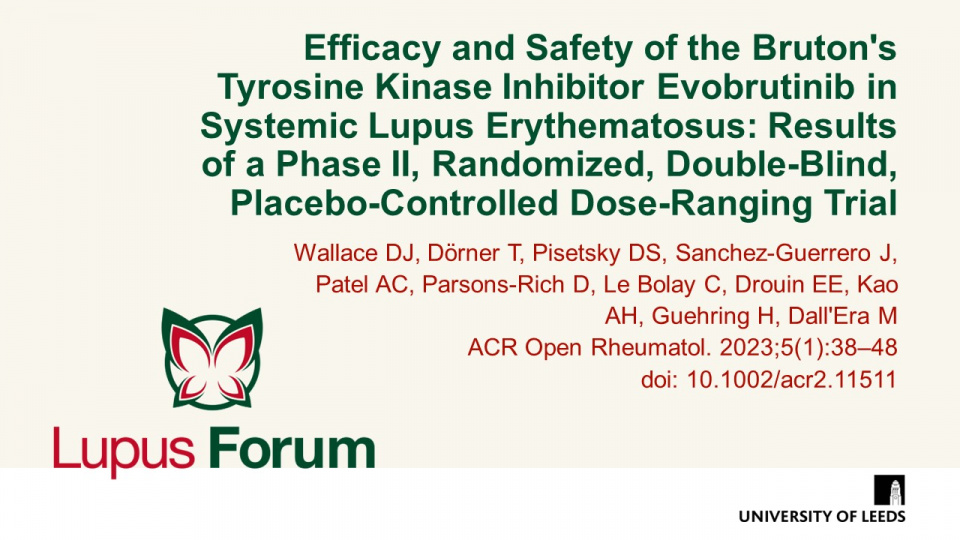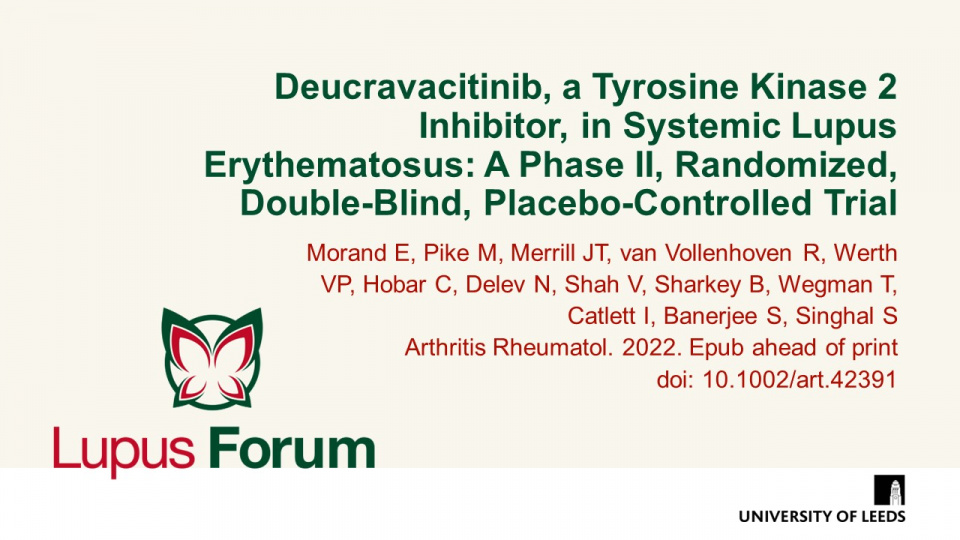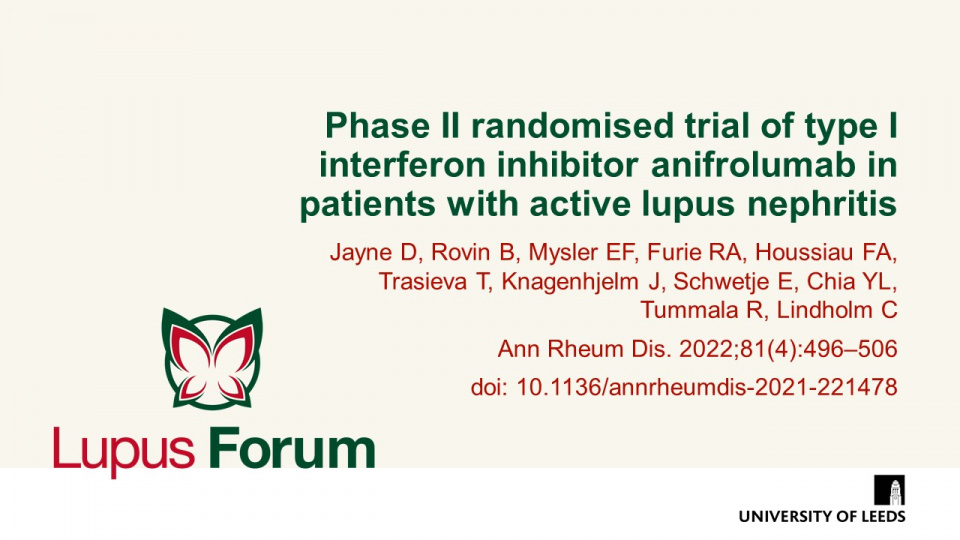Publications
Find coverage of the latest original articles on Lupus, focusing on those with data on therapeutic interventions and those that have clinical impact.
Efficacy and Safety of the Bruton's Tyrosine Kinase Inhibitor Evobrutinib in Systemic Lupus Erythematosus: Results of a Phase II, Randomized, Double-Blind, Placebo-Controlled Dose-Ranging Trial
ACR Open Rheumatol. 2023;5(1):38–48 doi: 10.1002/acr2.11511
Results of a phase II trial of evobrutinib suggest that Bruton's Tyrosine Kinase (BTK) inhibition is not an efficacious therapeutic intervention over standard of care therapy for patients with SLE.
Keywords:
Deucravacitinib, a Tyrosine Kinase 2 Inhibitor, in Systemic Lupus Erythematosus: A Phase II, Randomized, Double-Blind, Placebo-Controlled Trial
Arthritis Rheumatol. 2022. Epub ahead of print doi: 10.1002/art.42391
Phase II trial results of deucravacitinib support the potential benefits of TYK2 inhibition in SLE.
Keywords:
Phase II randomised trial of type I interferon inhibitor anifrolumab in patients with active lupus nephritis
Ann Rheum Dis. 2022;81(4):496–506 doi: 10.1136/annrheumdis-2021-221478
Despite not meeting the primary endpoint, this Phase II trial of anifrolumab in patients with active lupus nephritis (LN) demonstrates that anifrolumab IR is associated with numerical improvements over placebo across endpoints – including complete renal response – in patients with active LN.




